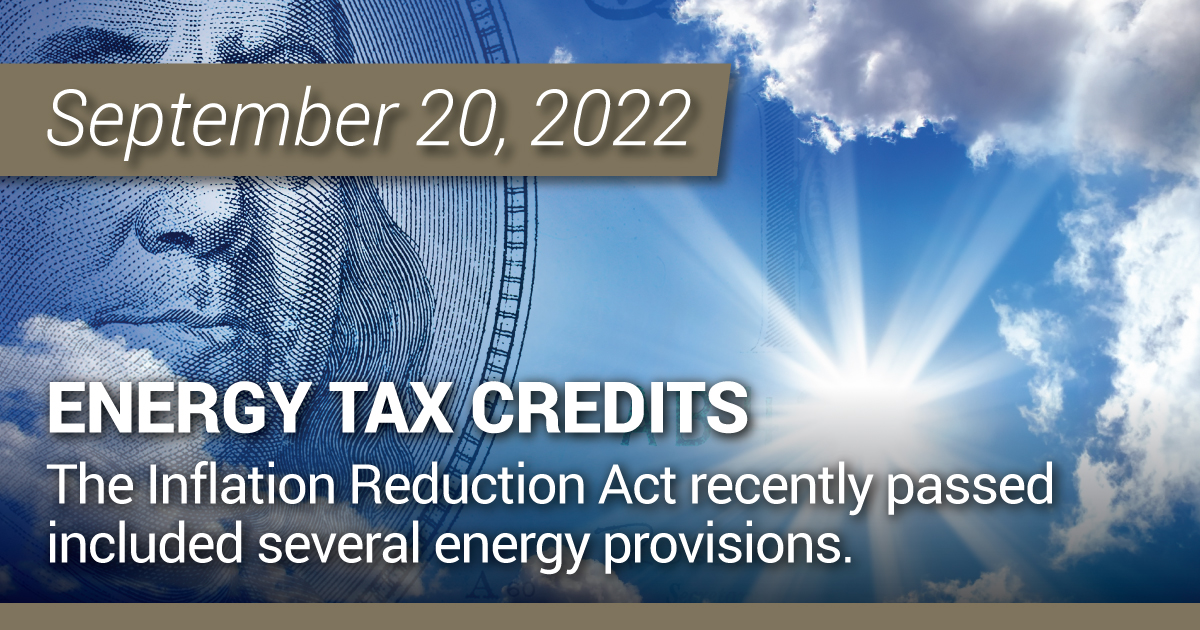Energy Tax Credits

The Inflation Reduction Act recently passed included several energy provisions. The White House has also created a new webpage for taxpayers to learn about the available credits www.CleanEnergy.gov.
The listing below provides a summary of the credits and their revision. Accessing the website above can provide more in-depth information.
- Energy Efficient Home Improvement Credit, formerly Nonbusiness Energy Property Credit
- The revised credit is 30% of the cost for all eligible energy-efficient home improvements made during the tax year and expands to cover specific other improvements
- Beginning on 1/1/2023 and extended through 2032, a $1,200 annual credit limit replaces the prior $500 lifetime limit
- Qualified energy property includes appliances, such as water heaters, heat pumps, and central air conditioners, as well as improvements, such as insulation, exterior doors, and exterior windows.
- Residential Clean Energy Credit replaces the Residential Energy Efficient Property Credit
- The credit is eligible for the cost of installing qualifying systems that use solar, wind, geothermal, biomass, or fuel-cell power to produce electricity, heat water, or regulate the temperature in the home
- The credit is 30% of qualifying expenses extended through 2032; in 2033, the credit is reduced to 26%, and 22% for 2034
- Electric Vehicle Tax Credit Revised
- Renewed the $7,500 new electric vehicle tax credit starting January 2023
- Requirements for New electric vehicles eligible for the credit:
- Vehicle assembly in North America and battery minerals must come from the U.S. or a country with a free trade agreement.
- The cars must cost less than $55,000 ($80,000 for SUVs and trucks), eliminating popular vehicles like the Tesla Model S and Model X
- Removes the vehicle cap on manufacturers
- The credit can be applied at purchase from a dealer lowering the cost of the vehicle, rather than waiting until you file your return to receive the credit
- Added a credit up to $4,000 for used electric vehicles
- The cars must be at least two years old and cost $25,000 or less
- A taxpayer’s adjusted gross income must be below $150,000 for individuals or $300,000 if married filing jointly to qualify for the new vehicle credit
Please contact your tax advisor if you have further questions regarding these credits and their applicability to your situation.
